Feeling Stranded: Linen Ray Reclaim Their Sense of Hope on ‘By a Thread’ Single
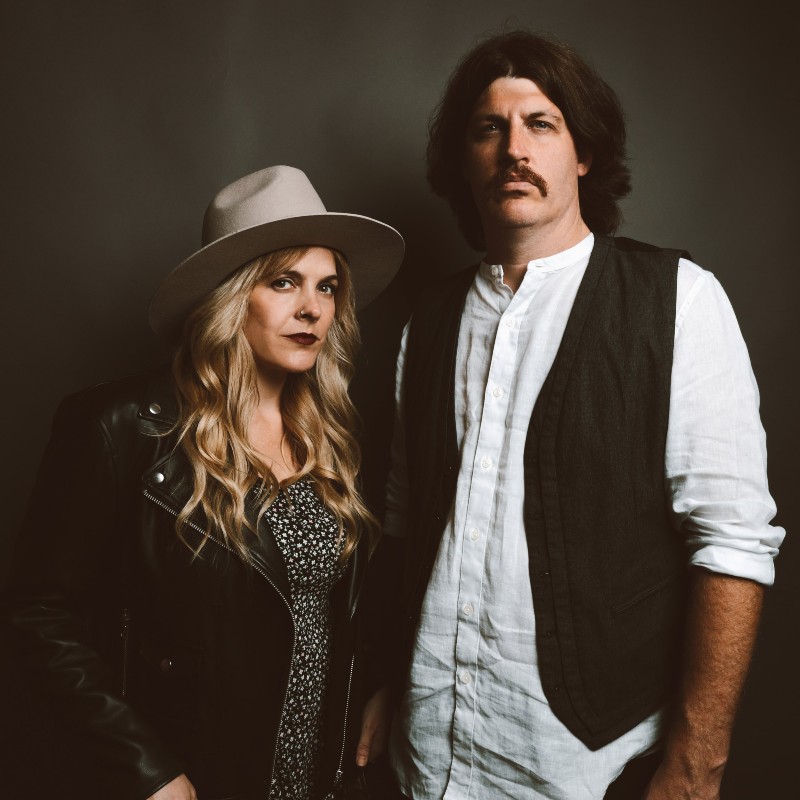
Despite feeling overwhelmed and heartbroken, Linen Ray refused to give up hope.
The married folk-rock duo of Rebekah Craft (vocals) and Gabriel Craft (drums, backing vocals) tried to stay positive and calm while helping a loved one navigate a mental health crisis.
But over time, it felt like they were carrying the weight of the world on their shoulders. There were moments when caring for another became too much to handle alone.
“Trauma will sometimes cause a person to bury their pain and live in denial. For us, it felt so completely overwhelming,” said Rebekah Craft, who hails from Ypsilanti, but is based in Nashville, Tennessee with Gabriel Craft and their family.
“We weren’t exactly living in denial, but when life comes down on you so hard and you feel helpless, you sometimes lose the ability and energy to express your thoughts and feelings. We were grieving and in a dark place.”
In that dark place, Linen Ray reclaimed their sense of hope and channeled their emotions into songwriting. What resulted is “By a Thread,” a vulnerable new ballad that serves as a plea for help and understanding.
Friday Five: Iggy Pop, Jacob “Spike” Kraus, The Chopped Liver, Christmas, Dead Schembechlers

Friday Five highlights music by Washtenaw County-associated artists and labels.
This week jazz-tinged Hanukkah tunes by Jacob “Spike” Kraus, lo-fi Xmas classics by The Chopped Liver, an industrial-techno mix by Christmas, a violent holiday clash by Dead Schembechlers, and Iggy Pop covering several seasonal faves.
AADL 2023 STAFF PICKS: HOMEPAGE

People who work at the Ann Arbor District Library love to give recommendations.
Whether in person at one of the five branches, in the News and Reviews section of AADL's website, or right here at Pulp, highlighting our favorite books, films, TV shows, video games, websites, adventures, and more is just part of the gig.
Like you, we are passionate enjoyers of media and experiences.
This is our seventh year compiling Ann Arbor District Library staff picks—and with more than 40,000 words spread out over four posts, it is the longest edition yet.
To reiterate: We. Love. To. Give. Recommendations.
Here are the creative works and experiences we discovered in 2023 that moved us enough to share them with you. (Not that you needed to twist our arms.)
➥ AADL 2023 Staff Picks: Words
➥ AADL 2023 Staff Picks: Screens
➥ AADL 2023 Staff Picks: Audio
➥ AADL 2023 Staff Picks: Pulp Life
AADL 2023 STAFF PICKS: AUDIO

➥ AADL 2023 Staff Picks: Homepage
➥ AADL 2023 Staff Picks: Words
➥ AADL 2023 Staff Picks: Screens
➥ AADL 2023 Staff Picks: Pulp Life
AADL 2022 STAFF PICS: AUDIO
Music, podcasts, CDs, records, and more:
Friday Five: Ki5, Turner Luce, Studio Lounge, kaito ian, Mree
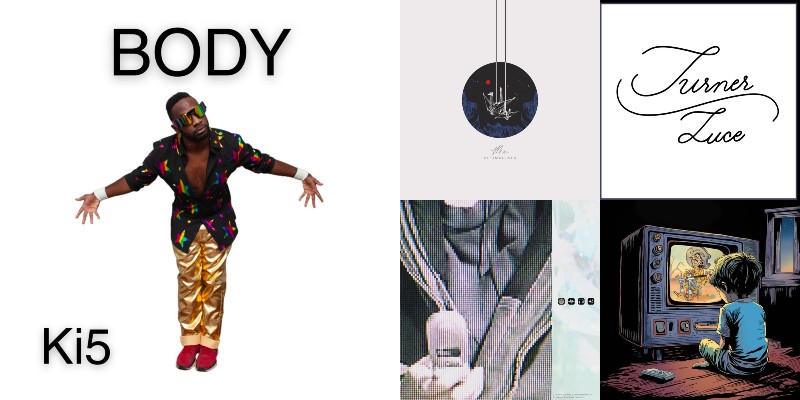
Friday Five highlights music by Washtenaw County-associated artists and labels.
This week features a cappella techno by Ki5, Americana by Turner Luce, quirky pop by Studio Lounge, electronica by kaito ian, and dream folk by Mree.
Friday Five: Prism Quartet, Jib Kidder, Virga, Blowhole, Frontier Ruckus
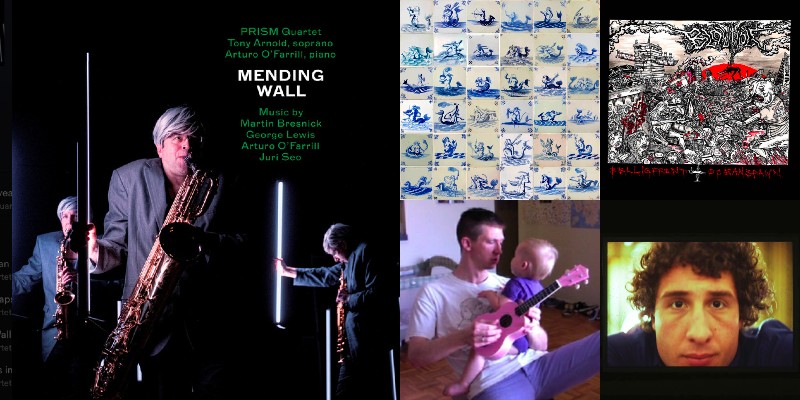
Friday Five highlights music by Washtenaw County-associated artists and labels.
This week features classical/jazz/new music by PRISM Quartet, glitch pop by Jib Kidder, indie rock by Virga, thrash-punk by Blowhole, and indie-folk by Frontier Ruckus.
This Is Your Song: Jeff Tweedy's New Book Makes Us Think About How We Connect With Our Favorite Music
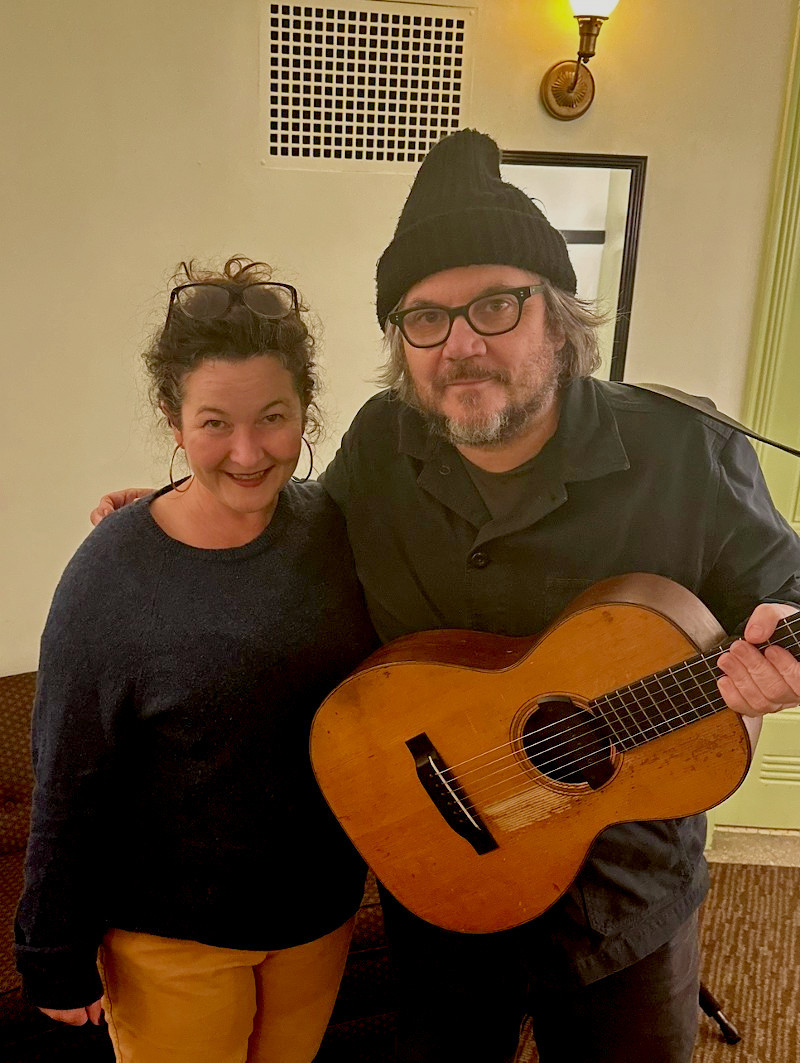
Back in 2009, I actually heard Wilco for the first time.
It’s not that I didn’t know the band’s music, but it was the first time I had developed an emotional connection to one of their songs.
It was “You and I,” a heartwarming duet with Feist from the band’s self-titled album. The track addresses two lovers trying to preserve a relationship as Wilco frontman Jeff Tweedy sings, “You and I, we might be strangers / However close we get sometimes / It’s like we never met.”
While I’ve never met Tweedy and or any of the other Wilco members, “You and I” emanates a comforting familiarity in terms of its memorable lyrics, bittersweet harmonies, and smooth bassline.
There’s an unexplainable pull I feel to it, and it’s something Tweedy easily masters after nearly three decades of writing Wilco songs.
“I’m much more fascinated by the blurry area between a song and the mind that receives it, puts it back together in a shape that fits their own life, and allows the heart to take ownership,” writes Tweedy in his latest book, World Within a Song: Music That Changed My Life and Life That Changed My Music.
That statement nicely encapsulates the key takeaway from Tweedy’s third book, which highlights the memorable connections—both positive and negative—he’s made with 50 different songs throughout his life.
Friday Five: Joe Hertler, Modern Lady Fitness, DFRNC & Alexa Kenny, zagc, BigPlanet
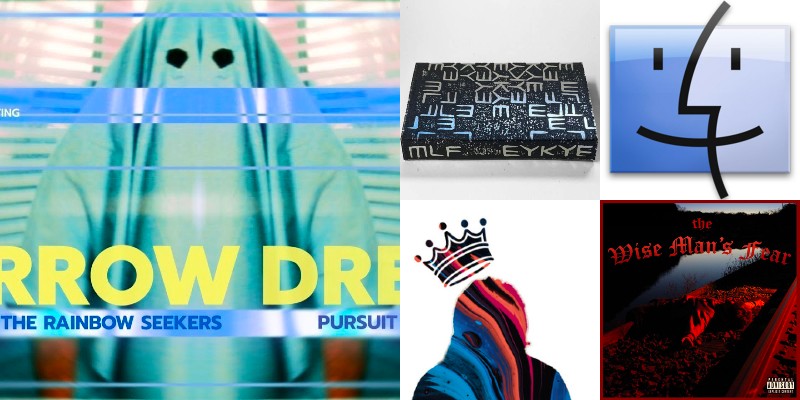
Friday Five highlights music by Washtenaw County-associated artists and labels.
This week features an Ann Arbor-filmed video by pop-rockers Joe Hertler and the Rainbow Seekers, artsy indie by Modern Lady Fitness, hip-hop R&B by DFRNC featuring Alexa Kenny, percussive techno by zagc, and hip-hop by BigPlanet.
Along the Way: Ypsi singer-songwriter Adam Plomaritas returns with his first new release in a decade

Adam Plomaritas’ new EP reflects on his personal journey of love and growth.
It provides the Ypsilanti pop-soul singer-songwriter with an emotional outlet for exploring the opportunities and challenges that come with being loved and loving others.
“These tunes are about finding a balance between wondering if you’re loved enough and if you’re loving enough in the best ways,” said Plomaritas about Old Time Love, his first collection of new songs since his 2013 album, The Hard Way. “As a husband, father, son, brother, and artist, it’s natural to seek approval, if not always healthy.”
Plomaritas beautifully captures that sentiment on Old Time Love, which features five infectious tracks filled with heartfelt vocals, vibrant horns, and upbeat pop-rock instrumentation.
“The EP is a little bit of introspection, even though the songs are generally light and fun in nature,” he said. “You seemed to have pierced the hard candy shell and gotten to the ooey, gooey chocolate inside—it’s about feeling like you’re enough.”
I recently spoke with Plomaritas about growing up in a musical family, solidifying his writing and recording skills through earlier releases, anticipating his first new release in 10 years, sharing select songs from Old Time Love, and preparing for a December 1 show at The Ark.
Friday Five: Kelly Moran, OVVR, Mirror Monster, Electrifying Audiences, Dre Dav

Friday Five highlights music by Washtenaw County-associated artists and labels.
This week features emotive piano by Kelly Moran, R&B hip-hop by OVR, electronic instrumental pop by Mirror Monster, post-punk synths by Electrifying Audiences, and rap by Dre Dav.


































